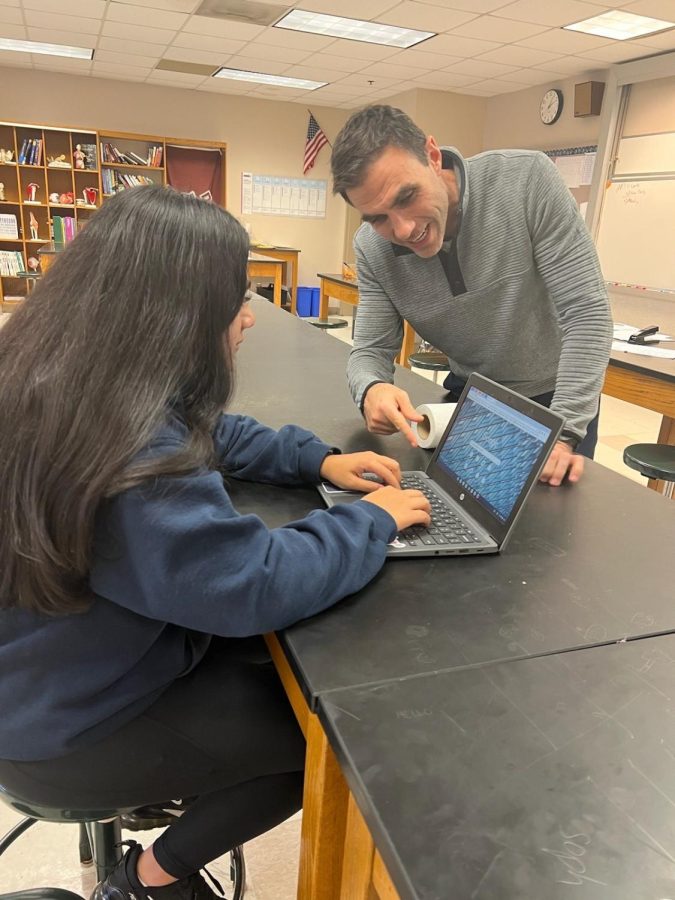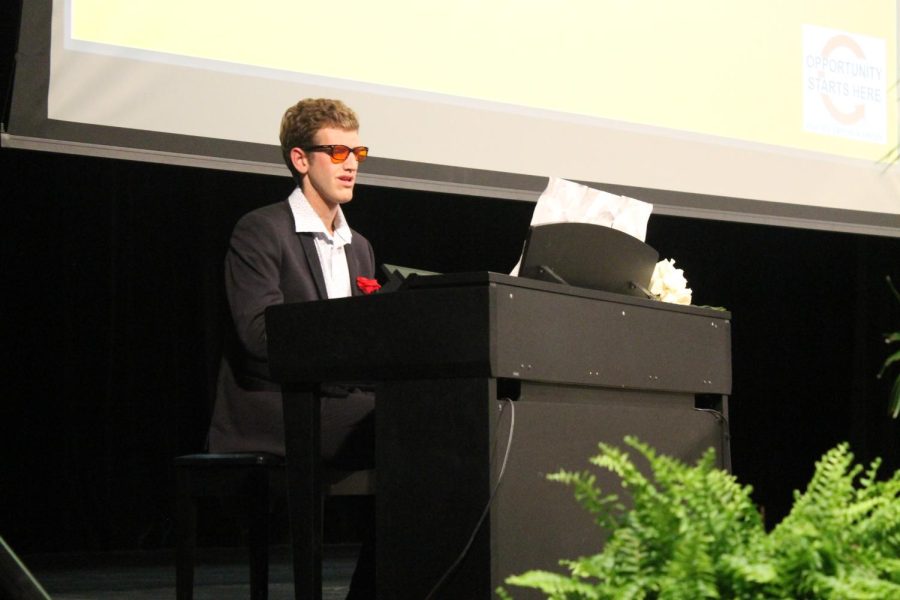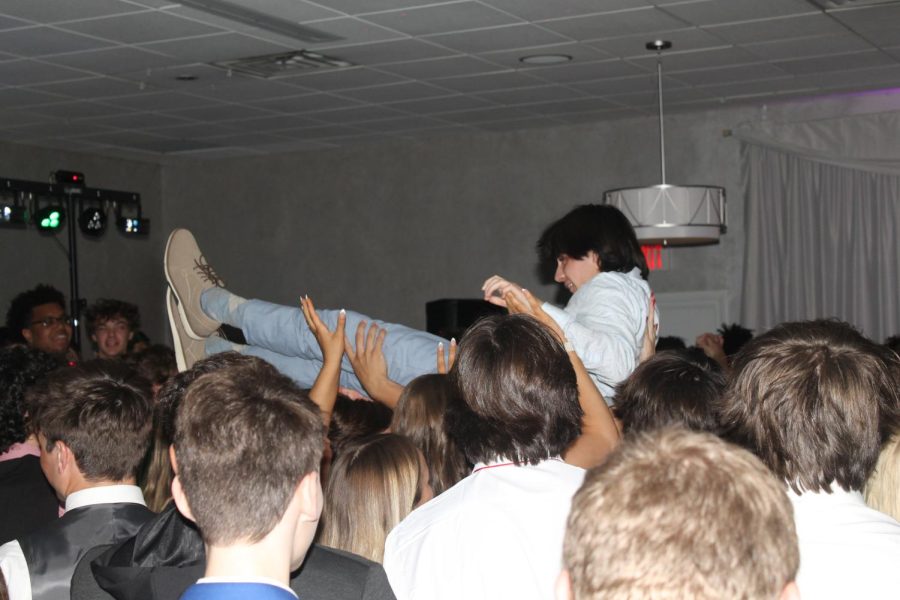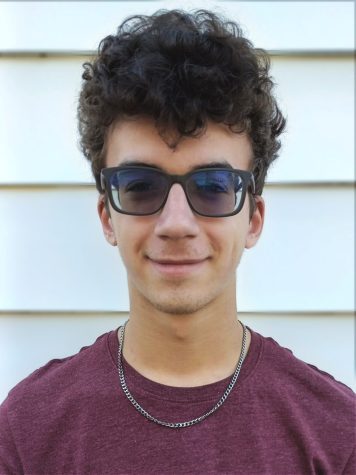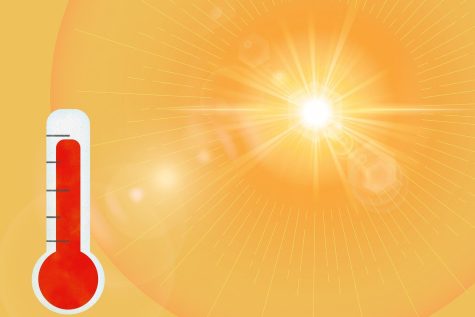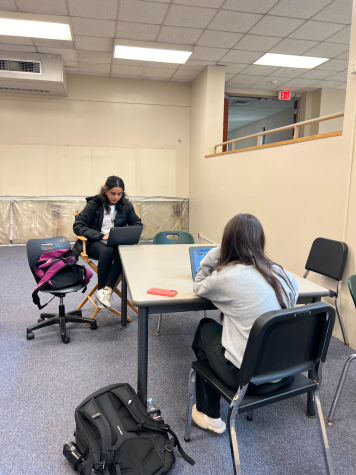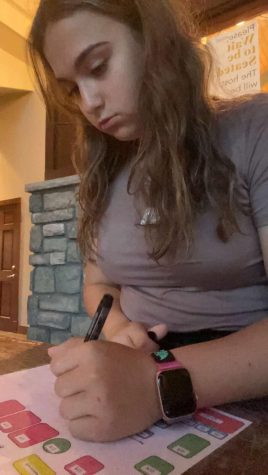Majority of students don’t sleep enough
After lunch, freshman Josie Pickerill works on an assignment in Kerry Rutigliano’s English 1 Honors class. When surveyed, the freshmen said homework was the number one reason why they don’t get enough sleep.
March 8, 2022
Over 85% of students at Mayfield High School are not receiving enough sleep. Students say there are several reasons why.
On Feb. 17, a survey was sent to all Mayfield High School students. It asked how many hours of sleep they get on weeknights and which factors contribute to difficulty getting enough. The survey received over 200 responses, with at least 40 per grade level.
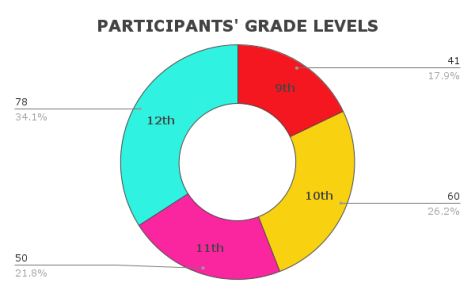
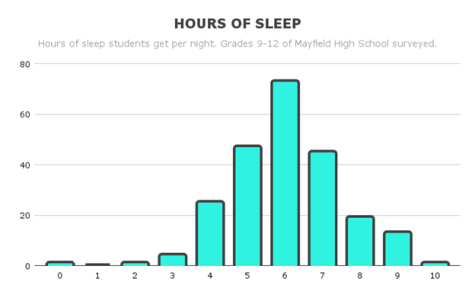
The majority of students get between five-to-seven hours of sleep according to the survey. The Center for Disease Control and Prevention (CDC) recommends that those aged 13-18 receive at least eight hours of sleep each night. By this, over 85% of MHS students do not get enough.
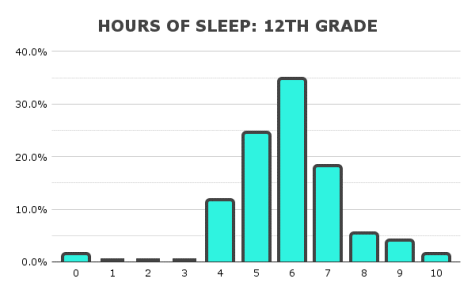
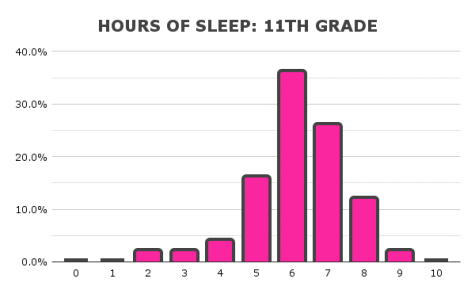
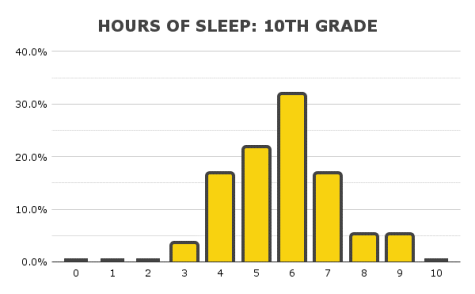
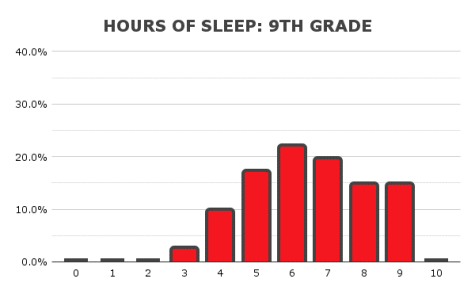
The most widely represented range is five-to-seven hours of sleep per night, with six hours being the most common interval.
The graph of the 9th-grade sleep data looks drastically different from those of 10th, 11th, and 12th grade. After 9th grade, the number of students that get at least eight hours of sleep diminishes below 15% for the other grades. 10th-grade students get the least sleep based on the data—only 10% get at least eight hours.
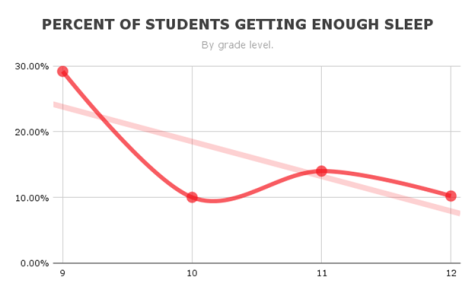
Biology teacher Kristy Palmeri-Elias thinks teenagers need more sleep for several reasons. She said, “You’re growing, [and] your metabolism is working at night. You need time to reset. Your immune system will work better if you get enough sleep.”
Tommy Grieshammer, a student-teacher for Palmeri-Elias and a 2017 Mayfield graduate, says that it’s during sleep that bodily repair and memory processing occurs. He said, “In the long-term, it’ll prevent the buildup of waste products in your brain, most famously amyloid plaques, which are gunk that leads to neuro-degenerative diseases like Alzheimer’s.”
Palmeri-Elias said that another aspect to consider is circadian rhythm, the body’s internal clock. “[Circadian rhythm] works like this: when it’s dark out, your pineal gland releases melatonin, and that’s what kicks in your sleep. That’s why when it gets dark at 5pm, you feel more sleepy than you would if it got dark at 9pm.”
She considers the effects of lack of sleep when thinking about her daughter. “If I let my daughter watch TV at night and have the lights on, she’s not going to fall asleep, So, an hour before bed, I have to be sure there are no screens and that the lights are dimmed,” she said.
Grieshammer thinks the screen color temperature, such as Night Light on Windows 10 or Night Shift on iOS, does not solve the issues caused by screen usage at night. “The intensity of light is the biggest factor in keeping you awake. Whether it’s blue light or warm light, it might have a little of an effect, but not as big of an effect as the sheer brightness.”
Another question on the survey was which factors make it harder to get enough sleep. An overwhelming majority of students listed homework (91%) as a contributing factor. Others listed stress (68%) and social media (43%) as factors.
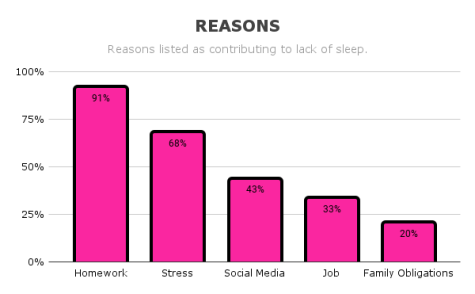
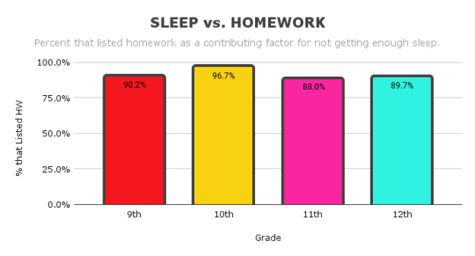
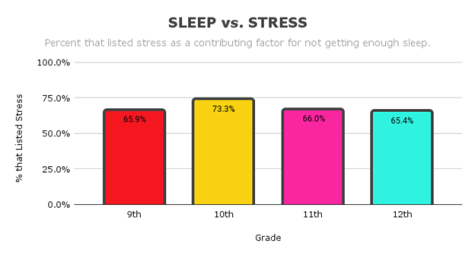
Homework was by far the most popular response by students as to why they do not receive enough sleep. At least 88% of each grade level selected it. Many also selected stress, with above 65% of each grade level selecting it.
Percentages of 9th, 11th, and 12th-grade students are fairly balanced. Sophomores are more affected by homework and stress than other grade levels, the survey suggests. 59 out of 61 sophomores said homework was a factor, and 44 out of 61 said that stress was a factor.
Palmeri-Elias suggests that a possible solution to relieve the burden of homework is to set aside time strictly for it. She said, “[Students] should limit distractions during homework time. For example, putting your phone away, turning off the TV, not being around any peers or siblings so that you can get the homework out of the way more efficiently.”
She observes that homework doesn’t take very long just because of its difficulty, but also because of distractions. “The assignment should take a half-hour, but it takes longer because you’re distracted with a Snapchat conversation, and then you end up in a conversation with someone, and then you have just wasted 15 minutes. You have to limit all distractions.”




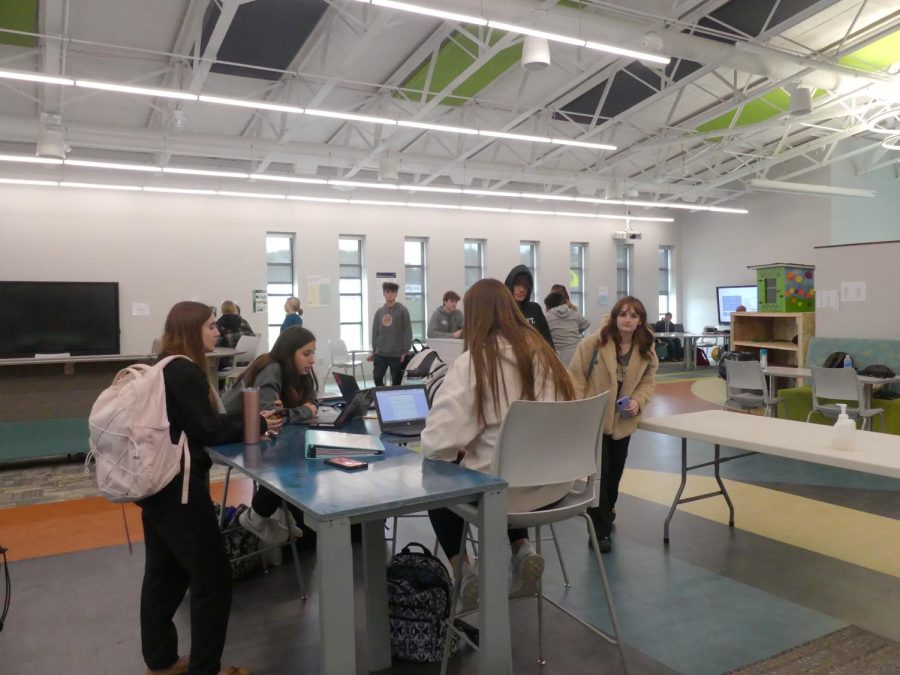
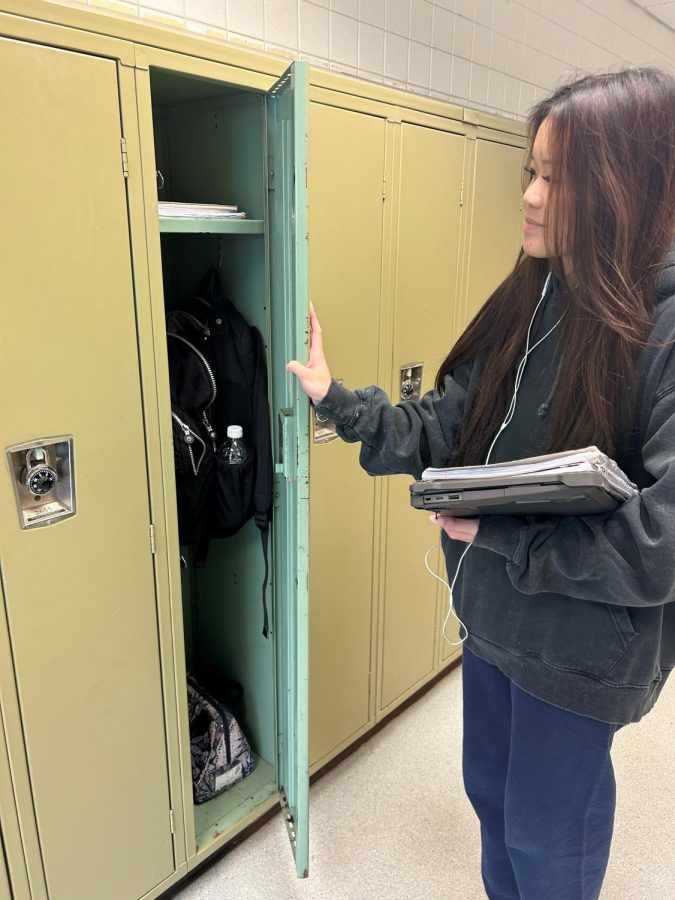
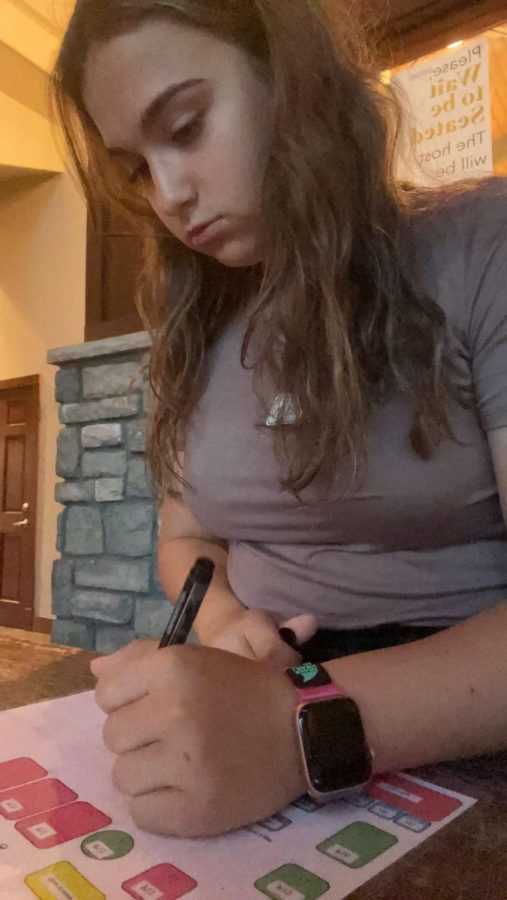
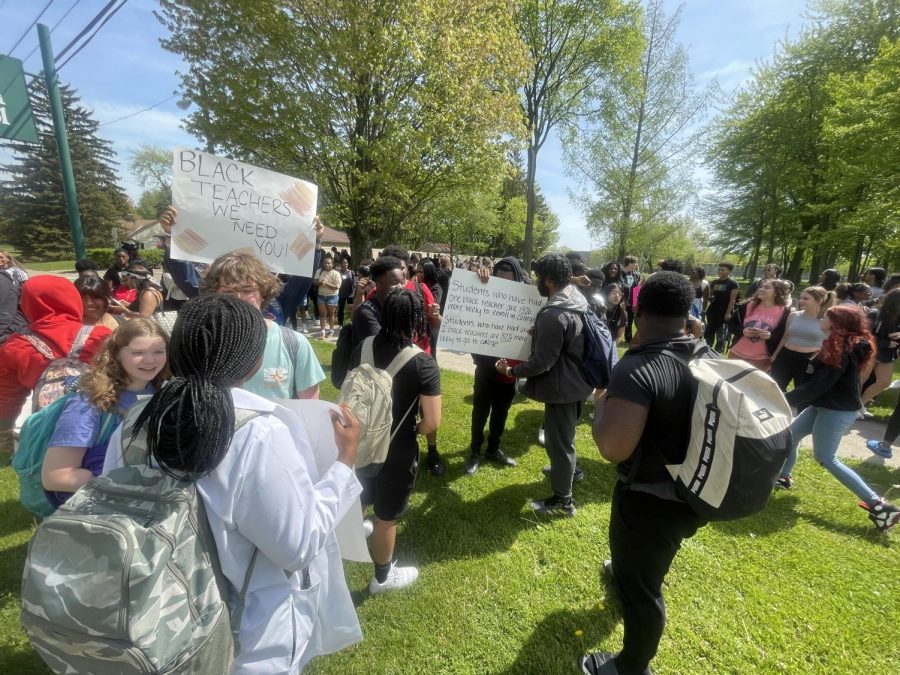

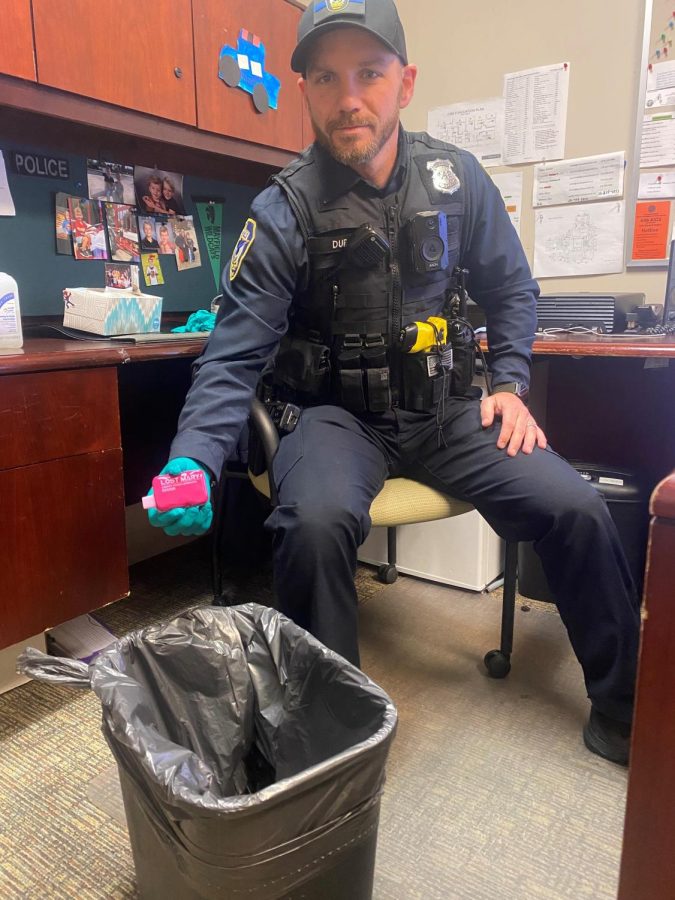
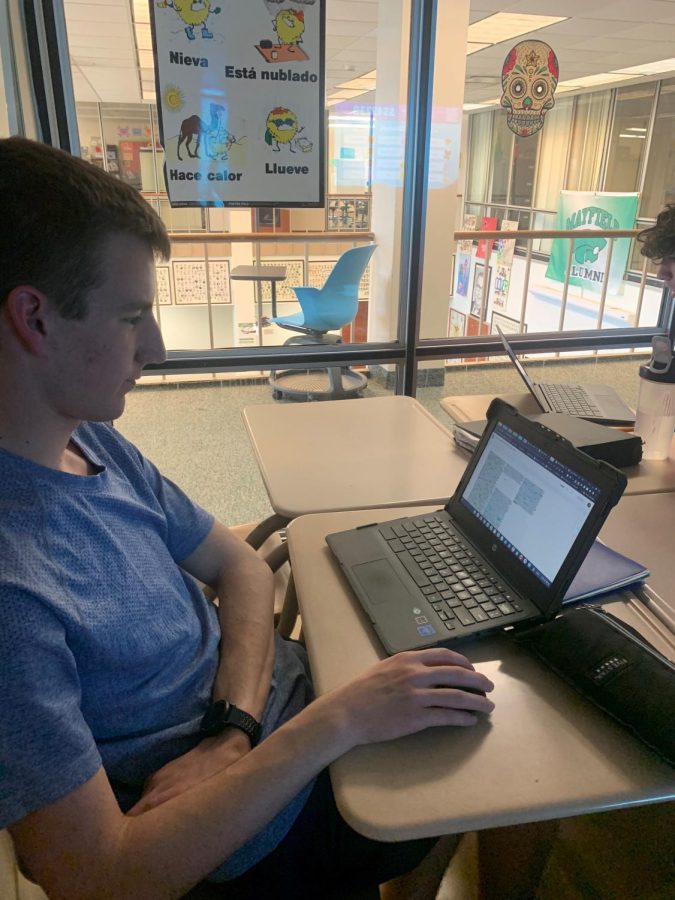




![Russian president Vladimir Putin took action to invade Ukraine on Feb. 24. According to the PBS Frontline episode Putins Revenge, Putin is obsessed with his image and how he and his countrys actions are portrayed. The Atlantics Julia Ioffe said, [Putin] watches tapes of the evening news over and over and over again to see how he’s portrayed, to see how he looks.](https://pawprintnews.org/wp-content/uploads/2022/04/putin-5277284_1920-900x596.jpg)




